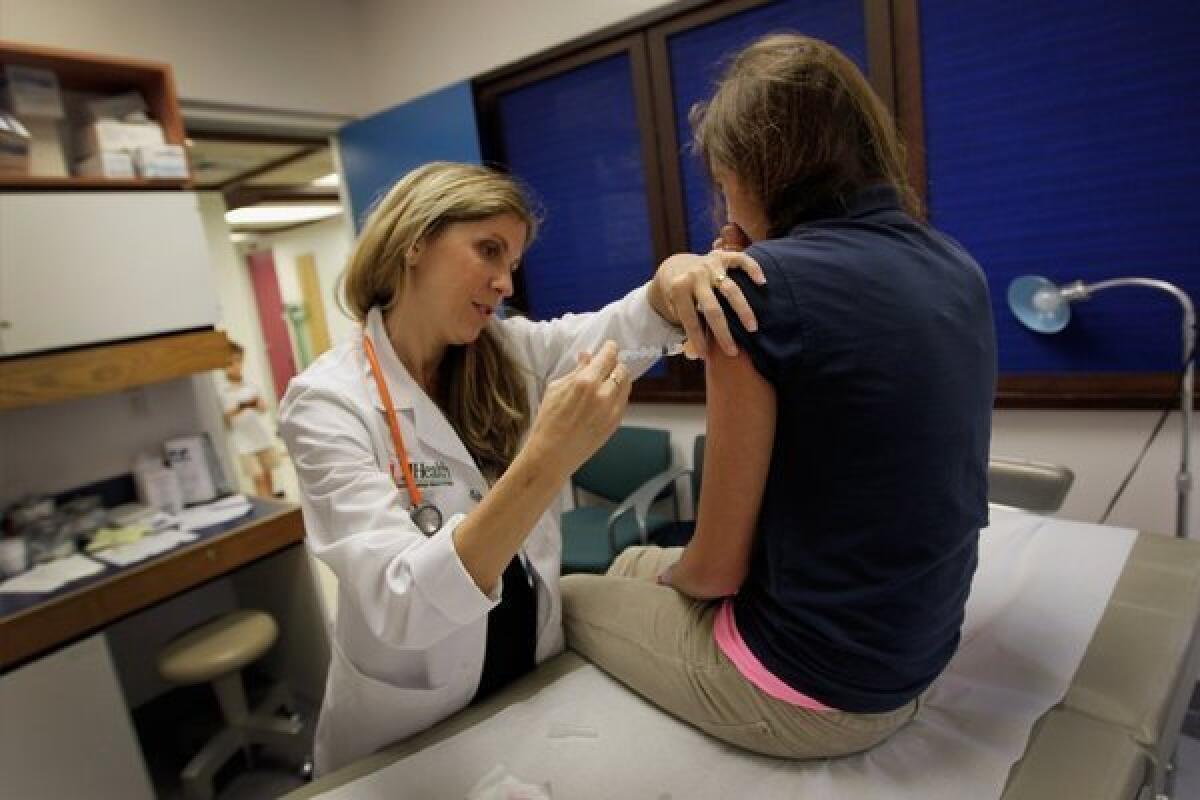Many parents say no to HPV vaccine but vaccinations are up: study

Parents forgo vaccines for their teenage kids for a number of reasons, researchers said Monday in a paper reporting findings from the annual National Immunization Survey of Teens, which was published in the journal Pediatrics. That might mean that public health agencies need to try new things to get immunizations on target to prevent spread of the human papilloma virus, the cause of cervical and other cancers.
Overall, immunization rates among teenagers are on the way up, the Pediatrics study noted. Among boys and girls ages 13 to 17 rates went up from 72.2% in 2008 to 81.2% in 2010 for the vaccine for tetanus, diptheria and pertussis. Rates rose from 41.8% to 62.7% over the same years and the same ages for the quadrivalent meningococcal conjugate vaccine, which protects against meningitis. Teenage girls also completed the three-dose course of vaccination against the human papilloma virus (which causes cervical and other cancers) at higher rates, increasing from 17.9% in 2008 to 32.0% in 2010.
But immunization rates are not near the 90% levels officials have targeted within the decade. In cases where children were not up to date with their immunizations, parents were asked why. The most frequent reasons parents offered for choosing against getting Tdap and MCV for their kids were that the vaccines were “not recommended” or “not needed or not necessary.”
When it came to HPV vaccination (assessed in girls only), parents reported that they decided to forgo the immunization because it was not needed, because their daughter was not sexually active or because they were concerned about safety. Safety concerns, in particular, rose dramatically in the three years covered in the study, from 4.5% to 16.4% of parents. The authors called the trend “troubling.”
The team also reported that 43.9% of parents in 2010 said they did not intend to immunize a daughter for HPV. That was up from 39.8% in 2008 and came in spite of increased recommendations from physicians that teenagers get the vaccine.
The researchers concluded that public health workers may need to do more than just rely on pediatrician recommendations to get HPV immunization rates to increase.
“There may be a role for testing state and federally designed social marketing campaigns beyond approaches taken in the past,” they wrote.
Follow me on Twitter: @LATerynbrown




